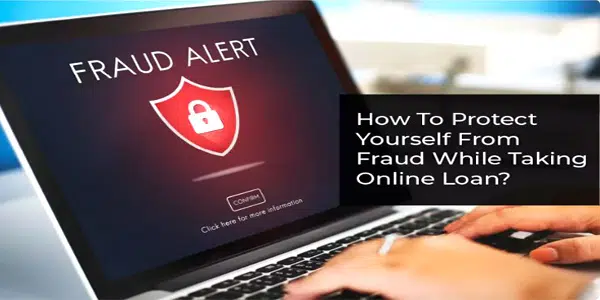Personal loans can be a great method to cover unforeseen bills or make a large purchase. However, as online lending platforms have become popular, so have personal loan scams and frauds. Scammers frequently prey on the unwary by promising quick and easy loans at low-interest rates. This essay will look at ways to avoid personal loan scams and fraud.
What are Personal Loan Scams and Frauds
Scammers pretend to offer an easy loan with no verification checks, impersonate legitimate company employees or dupe people through personal loan apps to siphon money off them.

How to Avoid Personal Loan Scams and Frauds
Research the Lender:
It is critical to properly study the lender before applying for a personal loan. Look for the lender’s reviews and ratings online. Check to see if the lender has registered with the appropriate regulatory body. It will assist you in determining whether the loan is reputable.
Don’t Accept Too Good to Be True Offers:
It is if a lender promises a loan that seems too good. Be wary of lenders offering low-interest rates or offering instant approval without a credit check. These are often red flags for personal loan scams.
Check the fees:
Before agreeing to a personal loan, checking the fees associated with the loan is crucial. Be wary of lenders who charge exorbitant fees or ask for upfront payments. Legitimate lenders usually charge processing fees that deduct from the loan amount.
Don’t Share Personal Data:
Scammers often ask for personal information, such as your Social Security number, bank account details, or credit card information. Only share this information if you are sure that the lender is legitimate. Legitimate lenders usually ask for personal information only after you have submitted a loan application.
Verify Loan Terms & Conditions:
Make sure to read and understand the loan terms and conditions carefully. Verify the interest rate, repayment period, and any other terms and conditions associated with the loan. If there is anything that you need help understanding, ask the lender to clarify.
Check for Security Measures:
Ensure that the lender’s website is secure and encrypted. Look for the lock symbol in the URL bar of a browser. If the website is not secure, do not enter any personal information.
Be Cautious of unrequested Offers:
Be cautious of unrequested offers you receive through email, text, or phone calls. Scammers often use these methods to lure unsuspecting individuals into personal loan scams. Do not respond to unsolicited offers, and do not click on any links provided in these offers.
What to do if you think you got scammed
If you’re the victim of an advance fee scam or a personal loan scam, don’t panic. Follow the below steps.
1. Break relations with the con artist. Don’t give the fraudster any further personal information or money. The update will never require you to make an advance payment or send monies using a gift card, prepaid card, or other similar method.
2. Inform the authorities. Report the scammer to the FTC and your state’s consumer protection office. Contact the local police department if you are a victim of theft.
3. Inform your bank or financial institution about it. If the fraudster appeared to be from a reputable company, you should report the event to that company. You may not get your money back, but it may prevent the scammer from taking advantage of others in the future.
Conclusion
Personal loan scams and frauds can leave you with a debt pile and a damaged credit score. By following these tips, you can avoid personal loan scams and protect yourself from fraudsters. Always research the lender, be wary of too-good-to-be-true offers, check the fees, don’t share your personal information, verify the loan terms and conditions, check for security measures, and be cautious of unsolicited offers. With these precautions, you can make informed decisions when applying for personal loans and avoid committing personal loan scams and frauds.
FAQs
A common excuse reported to the Federal Trade Commission (ftc.gov), common excuses include that the scammer is on an oil rig, paying off debts, or paying customs fees. They may also say they have a family emergency. They will rely on their victim’s love for them to get what they want.
Advance Fee Scams, Tech Support Scams, Phishing, Emergency Scams.
Since Personal Loans are unsecured (without security) loans, banks will look at cash flows, income, and business or employment stability to ensure you can repay the loan.